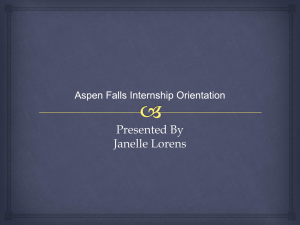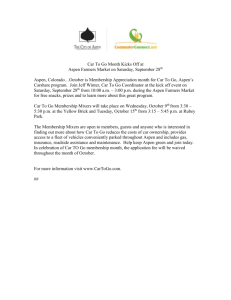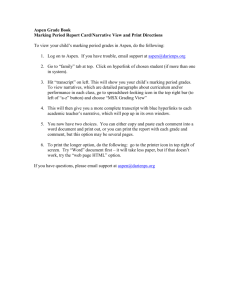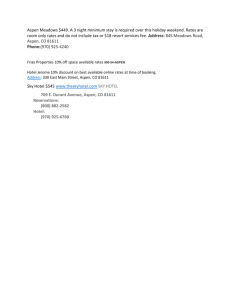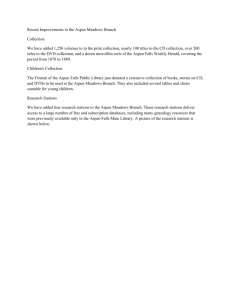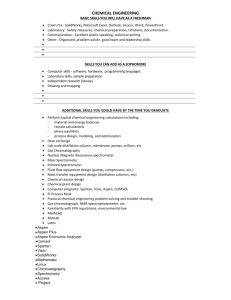Excellence in State Public Health Law:
advertisement
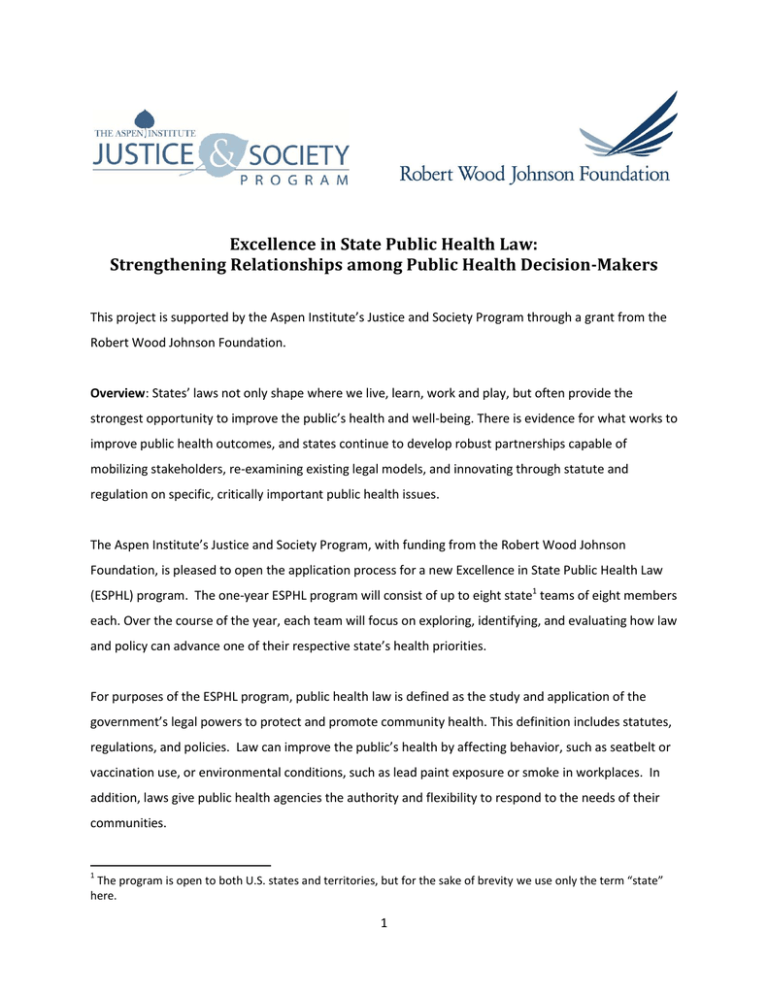
Excellence in State Public Health Law: Strengthening Relationships among Public Health Decision-Makers This project is supported by the Aspen Institute’s Justice and Society Program through a grant from the Robert Wood Johnson Foundation. Overview: States’ laws not only shape where we live, learn, work and play, but often provide the strongest opportunity to improve the public’s health and well-being. There is evidence for what works to improve public health outcomes, and states continue to develop robust partnerships capable of mobilizing stakeholders, re-examining existing legal models, and innovating through statute and regulation on specific, critically important public health issues. The Aspen Institute’s Justice and Society Program, with funding from the Robert Wood Johnson Foundation, is pleased to open the application process for a new Excellence in State Public Health Law (ESPHL) program. The one-year ESPHL program will consist of up to eight state1 teams of eight members each. Over the course of the year, each team will focus on exploring, identifying, and evaluating how law and policy can advance one of their respective state’s health priorities. For purposes of the ESPHL program, public health law is defined as the study and application of the government’s legal powers to protect and promote community health. This definition includes statutes, regulations, and policies. Law can improve the public’s health by affecting behavior, such as seatbelt or vaccination use, or environmental conditions, such as lead paint exposure or smoke in workplaces. In addition, laws give public health agencies the authority and flexibility to respond to the needs of their communities. 1 The program is open to both U.S. states and territories, but for the sake of brevity we use only the term “state” here. 1 Each ESPHL team must include: the State Health Official or high-level designee, such as a senior deputy, who will file the application and serve as Project Director; the legislative liaison to the agency responsible for public health; the legal counsel for public health; the Governor’s health policy senior staff member; a senior member of the legislative services office; a legislator from both the upper and lower chambers or their chiefs of staff or senior staff members (Nebraska—only one legislator required). The remaining team member(s) may be chosen from local health directors, or senior-level staff within other governmental agencies appropriate for the identified health priority. Non-governmental stakeholders may not be team members, but may engage with the team in other ways in order to advance the team’s goals. Goal: The goal of the ESPHL program is to provide education and other resources that will enable policymakers and agencies to more effectively address public health issues and to become leaders in creating healthier states. The program will strengthen public health law collaborations among state officials and state-level policymakers, and will increase these leaders’ effectiveness on public health issues in their respective states, including working across party lines, across government agencies and branches, and across sectors. Applicants should note that the Aspen Institute is a non-partisan educational organization. The Institute will not seek to influence the outcome of any election for public office, or support lobbying or other attempts to influence legislation. All of its activities, including activities supported through the ESPHL program, will comply with applicable lobbying, gift, and ethics requirements. Selection Process: All states and territories in the U.S. are eligible to apply. Applicants will be selected through a competitive application process, consisting of two phases. After the first phase, up to twenty states and territories will be selected and invited to submit a full application, which will enable teams to sharpen and clarify project methodologies and objectives. 2 Up to eight teams will be selected for the ESPHL program. Only one application will be accepted for each state, and the State Health Official or his/her high-level designee will be the project director for each team. States teams will have the option to designate a co-director or deputy director if it is appropriate for their goal or for the functioning of their team. Team selections will be made by the Aspen Institute, with advice from an Advisory Committee of public health and legal experts representing major stakeholders and professional associations. Collaborators include the Network for Public Health Law and the Public Health Law Research Program. A web conference will be held on Wednesday February 20, 2013 from 1-2 p.m. Eastern Time, and will provide applicants with an opportunity to ask questions that are general in nature. The State Health Official (or designee) and the legislative liaison are strongly encouraged to participate in the web conference. Criteria for Selection: The Aspen Institute will select state teams based on the total number and seniority of identified team members at the time of application; the readiness of team members to work in a collaborative fashion; their commitment to participating in the program for its entire one-year duration; their interest in addressing a public health issue through policy or law; and their strategic and entrepreneurial thinking. We will also consider the geographic, topical, and political diversity of participating states. To the extent possible, we expect that there will be balance on teams between members of different political parties. While selected projects will be based on states’ policy priorities, the Aspen Institute will seek projects that build consensus across partisan lines; engage more than one state agency; and demonstrate successful collaboration. Applications must focus on public health law and policy, and not on fields of study beyond the scope of the ESPHL program, such as health care delivery or Medicaid services. What Teams Will Receive: Selected teams will receive guidance on linking evidence to policy in their areas of interest, on how to work with diverse stakeholders, on developing and advancing implementation strategies, and on accessing resources in public health law and policy. Selected teams will also have the opportunity to share promising practices and to brainstorm with their peers about how best to address public health challenges in their respective states. In addition to travel support, 3 online and in-person sharing opportunities, and technical assistance from the Aspen Institute, each team will receive up to $10,000 in consulting funds to help facilitate their activities. Team members will develop a network of contacts with public health and policy experts throughout the country, as well as ongoing access to and recognition from leading experts in law and public health. Success will be measured by how well and to what degree (1) teams are able to lay the groundwork to create and/or implement their goals; (2) teams demonstrate their ability to collaborate towards a common goal; and (3) teams’ relationships are strengthened, preparing them to work together in the future on a public health law or policy. Additional Requirements: All team members must be available to participate in a three-day intensive cohort meeting in Glen Cove, New York on August 2-4, 2013, and there is a strong preference for all team members to attend a second meeting in Atlanta in January 2014. Teams will submit reports on their efforts, and the ESPHL Advisory Committee will provide feedback on these reports as necessary. A ceremony for team members in summer 2014 will mark the conclusion of the ESPHL program, when team members will be recognized as Fellows in State Public Health Law Excellence. All meetings, and travel to and from them, will be underwritten by the ESPHL program. How to Apply: Applications must be submitted through an online system. Visit www.aspeninstitute.org/esphl and click the “Apply Online” link. If you have not already done so, you will be required to register at the site before you begin the application process. Program Management: Meryl Justin Chertoff, Director of the Aspen Institute’s Justice and Society Program and former state legislative staff member and state-level lobbyist, will serve as the ESPHL Program Director. Dr. Leah Devlin, Professor of the Practice at the UNC Gillings School of Global Public Health, is the Program’s outside public health content consultant. Selection of the ESPHL Advisory Committee is underway, and its members will be announced at the beginning of April 2013. About The Aspen Institute: The Aspen Institute is an educational and policy-studies organization based in Washington. Its mission is to foster leadership and to provide a nonpartisan venue for dealing with social challenges. For more than thirty-five years, its Justice and Society Program has brought together individuals from diverse backgrounds, including public officials, established and emerging opinion 4 leaders, and grassroots organizers, to share their perspectives in a neutral and balanced forum and develop policy strategies for positive change. For more information on the Justice and Society Program, visit www.aspeninstitute.org/jsp. About the Robert Wood Johnson Foundation: The Robert Wood Johnson Foundation focuses on the pressing health and health care issues facing our country. As the nation’s largest philanthropy devoted exclusively to improving the health and health care of all Americans, the Foundation works with a diverse group of organizations and individuals to identify solutions and achieve comprehensive, measurable and timely change. For 40 years the Foundation has brought experience, commitment and a rigorous, balanced approach to the problems that affect the health and health care of those it serves. When it comes to helping Americans lead healthier lives and get the care they need, the Foundation expects to make a difference in your lifetime. For more information, visit www.rwjf.org. 5
